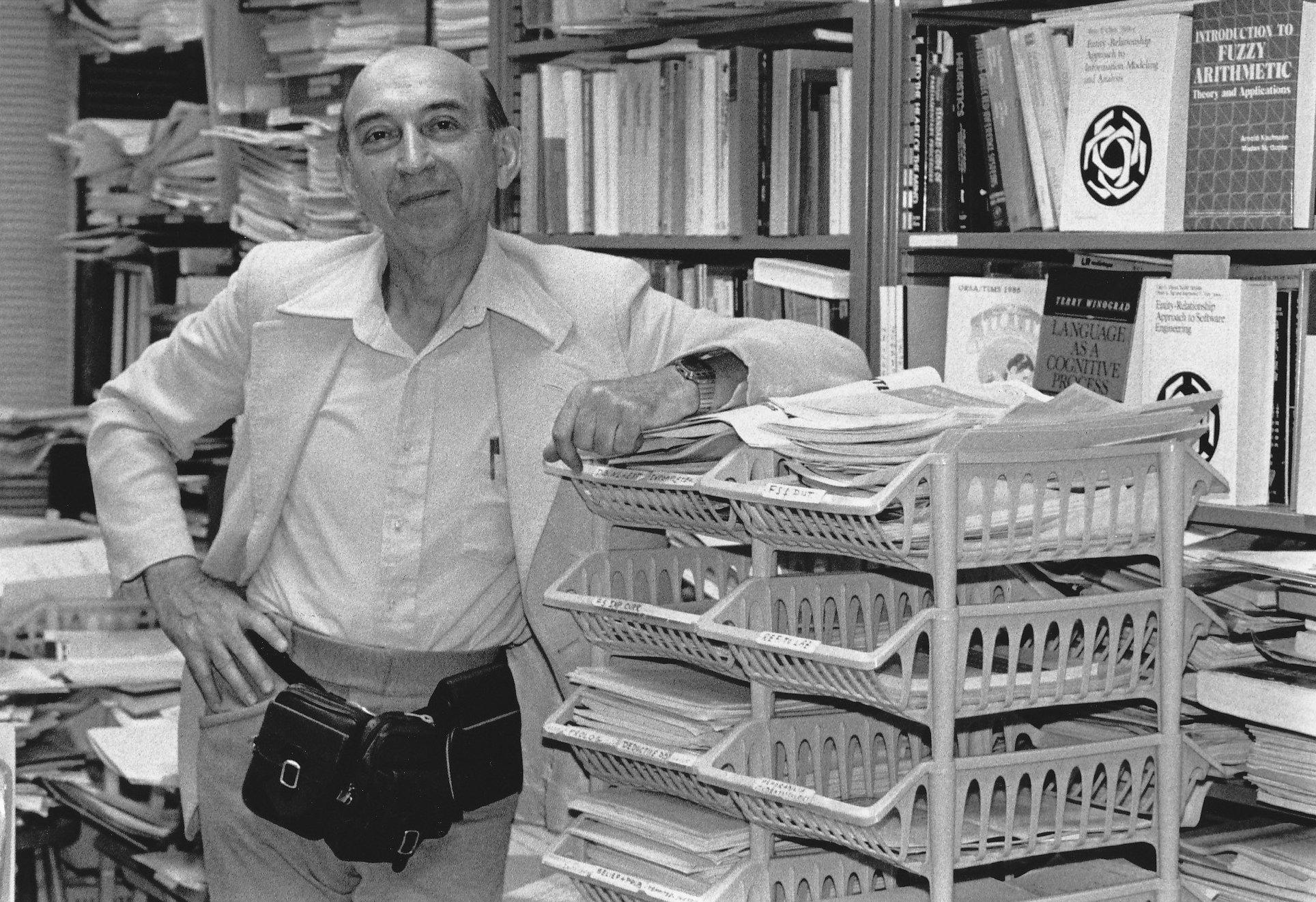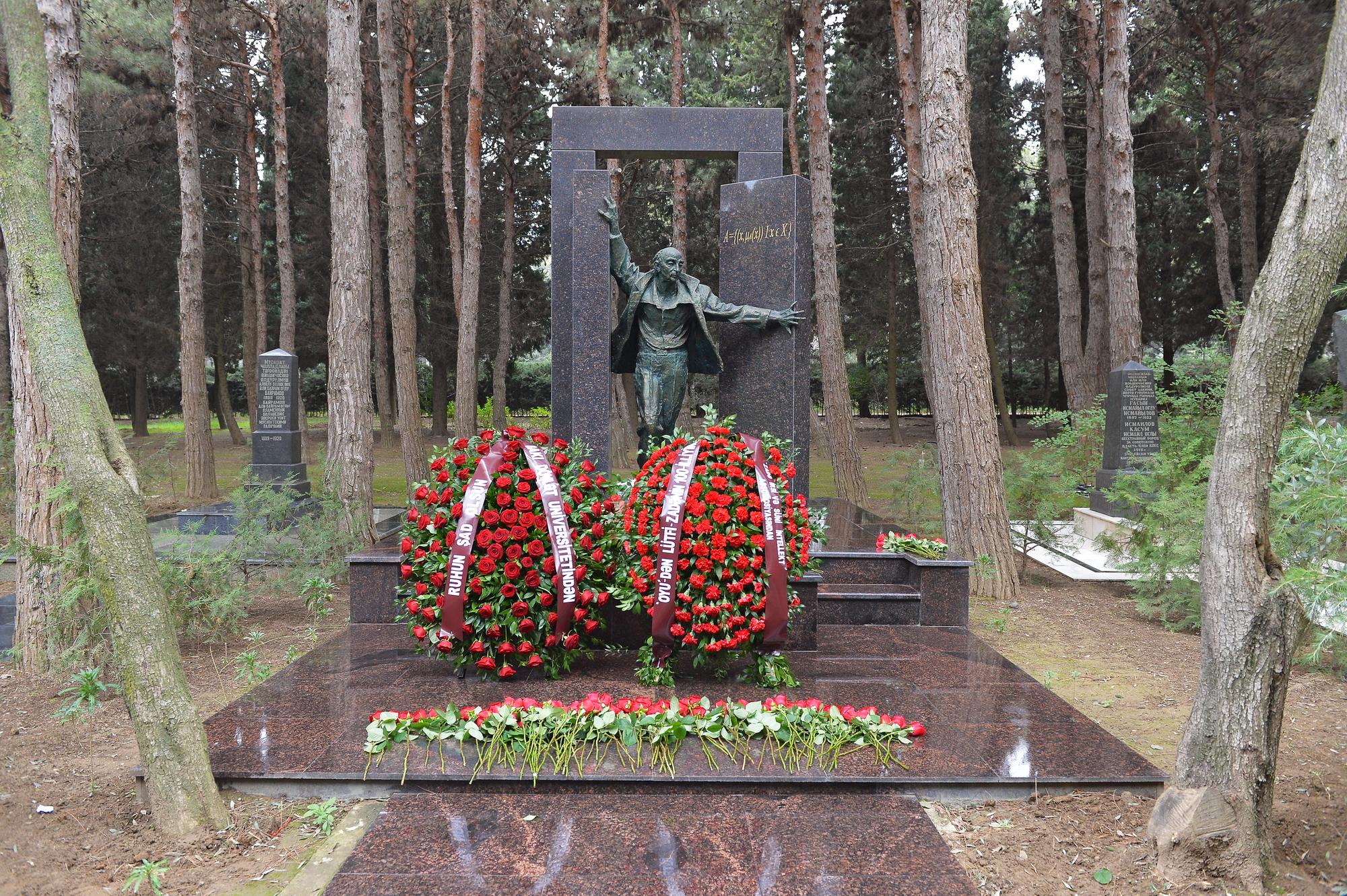Lotfi Zadeh - a man that changed the world: Azerbaijani roots of revolutionary “fuzzy logic” Even today, the world benefits Zadeh's inventions
The world lost him five years ago, however, his legacy and memories still make the headlines throughout the world as the founder of “fuzzy logic” that revolutionized the concept of cybernetics and carved an all-new path to the modernization of multiple spheres from robotics to electronics and defence.
The world-renowned Azerbaijani mathematician, artificial intelligence researcher, and professor emeritus of computer science at the University of California, Berkeley, Lotfali Rahim Oglu Asgarzadeh, better known as Lotfi Zadeh, cannot be forgotten since we encounter his revolutionary inventions almost everywhere from small computers in our homes to massive factories that churn out products to help ease our lives.
Lotfi Zadeh was born on February 4, 1921, in Baku. His ethnic Azerbaijani father, Rahim Aleskerzade, was a journalist on assignment from Iran, and his Russian-Jewish mother, Fanya Korenman, was a paediatrician from Odesa, a port city on the Black Sea in southern Ukraine.
The early years of Zadeh’s life in Azerbaijan went through a tumultuous period as the country was engulfed in the Soviet Union’s coercive incorporation campaign. Zadeh attended elementary school for a few years in Baku before leaving Azerbaijan first for Iran and then for the United States.
“Those three years, from age seven to ten, had a significant and long-lasting influence on my thinking and my way of looking at things," Zadeh said.
In 1931, youngster Lotfi moved to Tehran with his family due to threats of Soviet leader Joseph Stalin's severe immigration policies. There, he continued his education in English at a private Presbyterian missionary school, and by 1942 he had graduated from the University of Tehran with a degree in electrical engineering.
The next destination of the scientist was the United States, where he attended Columbia University in New York and earned his PhD in 1949. He was promoted to the role of Assistant Professor in Columbia’s electrical engineering department a year later and went on to teach Systems Theory, the study of the abstract organization of phenomena, independent of their substance, type, or spatial or temporal scale of existence.

In 1952, Zadeh was credited, along with John Ragazzini, with having pioneered the development of the z-transform method in discrete time signal processing and analysis. These methods are now standard in digital signal processing, digital control, and other discrete-time systems used worldwide in industry and research.
After a decade of professional activity at Columbia, Zadeh left to take the office as a chairman of the computer science department at the University of California in Berkeley. He returned to Columbia in 2011 to receive the Egleston Medal, an alumni award that recognizes distinguished achievement in engineering.
Lotfi Zadeh is best known for inventing the concept of "fuzzy logic,” a non-Euclidian approach to calculating probabilities, which he proposed in 1965. Fuzzy Logic is used for notions that cannot be defined in mathematical preciseness, but which rely on identifying gradations, hence the word, "fuzzy.” This form of logic is an approach to computing based on "degrees of truth" rather than the usual "true or false," Boolean logic binary format (using 1 and 0) on which the modern computer is based.
In addition to consumer applications, especially in electronics, Fuzzy Logic is used in the fields of biomedicine, finance, geography, philosophy, ecology, agricultural processes, water treatment, satellite remote sensing, handwriting analysis, nuclear science, and weather forecasting and stock market analysis.
The theory of fuzzy has made its way into the US space program and production of camera and video equipment in Japan, while in Denmark it was applied in the operation of cement furnaces and a variety of “smart” systems in Euroope start operating on fuzzy logic. The globally-acknowledged fuzzy logic is used by major Japanese companies such as Mitsubishi, Toshiba, Sony, Canon, Ricoh, Sanyo, Nissan, Honda and NEC, and American companies including General Motors, General Electric, Motorola, DuPont and Kodak. The Matsushita company, which produces consumer goods under Panasonic and Quasar brands, is said to generate billions of dollars in profit from applying fuzzy logic in its production lines.
“We are at the crossroads of politics, philosophy, sociology, theology, and conflict resolution of two revolutions. The first is the information revolution. This revolution created the international computer network, the Internet. The second revolution is the intelligent systems revolution. This revolution has created intelligent robots, intelligent control systems and fuzzy systems. These are all the fruit of fuzzy logic,” Zadeh said.
For his “fuzzy logic” contributions, Lotfi Zadeh has been awarded the Honda Prize, one of Japan’s highest scientific recognitions granted to the authors of revolutionary inventions. He has also received the prestigious University of California´s Berkeley Citation and was acknowledged as an honorary member of the Azerbaijan National Academy of Sciences (ANAS) and an honorary professor at many universities worldwide.
Zadeh travelled to Baku in 2008 to attend the International Exhibition and Conference “Telecommunication and Information Technologies” BakuTel. He was then received by President Ilham Aliyev.
Ganira Pashayeva, a member of the Azerbaijani parliament, recalls Zadeh in her memories as a real patriot who has never forgotten his homeland Azerbaijan despite living too far from where he was born. In one of the meetings in California, according to Pahayeva, Zadeh asked many questions about Azerbaijan from the then-occupied territories of the country to the settlement of the former Armenia-Azerbaijan conflict, the development of Azerbaijan as a whole, its economic potential, science, culture and more.
After his death in 2017, a letter of the will of Zadeh revealed his wish of being buried in his homeland Azerbaijan. In September of the same year, the Azerbaijani authorities brought the scientist’s body to the country and buried in the Honorary Alley, a state-preserved graveyard where prominent Azerbaijanis rest in peace. His tombstone symbolizes the way he led global science to all-new horizons thanks to the “fuzzy logic” theory. President Ilham Aliyev attended the farewell ceremony for the world-renowned scientist and conveyed his personal condolences to the professor’s family.

Today, Zadeh’s memory is highly respected in Azerbaijan. A street in the capital of Baku bears his name. In December 2021, the Education Ministry of Azerbaijan hosted an online “Lotfi Zadeh” Olympiad. The “1st International Lotfi A.Zadeh Conference: Fuzzy Logic And Applications” also took place in Baku in the same year. In February 2022, ANAS hosted an online “VIII Global Soft Computing Conference” dedicated to the 100th anniversary of the scientist’s birthday.
The physical absence of Lotfi Zadeh does not prevent his ideas, inventions, and theory from having an impact on people, science, and technology today. Thanks to his inventions and guidance for a better future, the global scientific community, businesses, and ordinary people overcome the past, present, and upcoming challenges. The world still enjoys the outstanding merit of “fuzzy logic” that continues to inspire achieving more for humanity.








